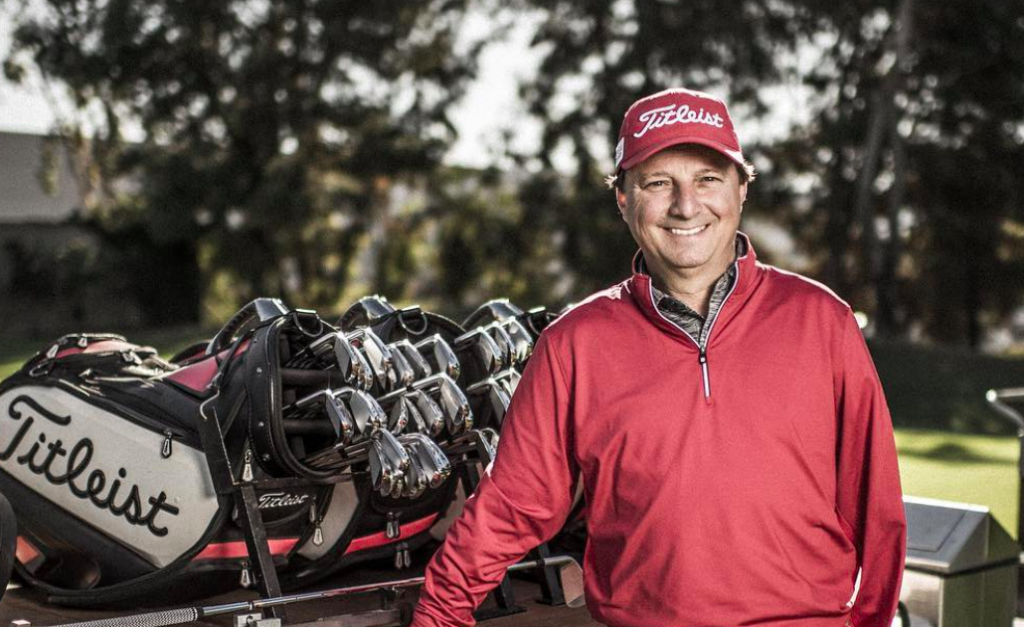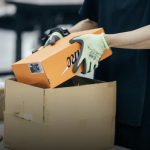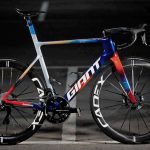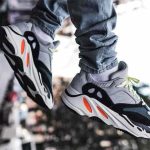With all its segments showing momentum, Acushnet Holdings Corp showed its second-straight quarter of growth in the fourth quarter while showing gains in underlying profitability.
The parent of Titleist and FootJoy also predicted low-single-digit growth for the current year and modest improvement in earnings.
In the fourth quarter ended December 31:
- Fourth-quarter net sales reached $351.4 million, up 6.6 percent year over year, or up 6.4 percent in constant currency.
- Net income was $11.7 million, up from a loss of $179,000 in the same period a year ago.
- Adjusted EBITDA improved 7.4 percent to $40.9 million.
Growth in Titleist golf balls and gear, which increased 9 percent and 4 percent, respectively, and FootJoy, which grew 15 percent, offset a 1 percent revenue decline in Titleist golf clubs, all in constant currency.
Earnings were helped by a reduction of SG&A expenses by 4.4 percent to $138.0 million, or 39.2 percent of sales from 43.8 percent. The reduced SG&A were primarily due to non-repeating EAR and IPO transaction costs incurred last year and lower share-based compensation costs that offset increased advertising, promotion and selling costs. A reduction in experimental and employee-related costs that were largely timing-related reduced R&D costs in the quarter by $1 million.
Net income benefited from a reduction in interest expense to $3.8 million from $5.8 million due to reduced debt following its IPO.
For the full-year 2017, sales of $1.56 billion were off just 0.8 percent and down 0.2 percent on constant currency. FootJoy and Titleist gear were the top gainers in 2017. Net income improved 104.7 percent to $92.1 million. Adjusted EBITDA was down 2.2 percent to $223.4 million.
“While the first half of 2017 fell short of our expectations,” said David Maher, Acushnet’s president and CEO, on a conference call with analysts, “our business bounced back nicely with gains in both the third and fourth quarters as our global team generated solid momentum which would carry into 2018.”
By segment, Titleist ball sales increased 9 percent for the quarter and were flat for the full-year 2017. Said Maher, “New Pro V1 and Pro V1x golfs had an especially strong quarter and performed well during the holiday season despite heavy promotional activity from all competitors in November and December.”
In the quarter, the DT Solo ball was introduced and a successful test of the Titleist AVX golf ball was completed in Florida, Arizona and California. Across global professional tours, Titleist wrapped up the year with 72 percent of the game’s professionals using Pro V1 or Pro V1x, more than six times the usage of the nearest competitor.
Said Maher, “Looking ahead, while ball sales in even-numbered years tend to trail odd years, which are Pro V1 launch years, we are optimistic about the trajectory of our ball business and look forward to introducing several new initiatives and new products in the coming months.”
The initiatives include ongoing education and promotion in support of its Pro V1 models, the launch of its Titleist Tour Soft and Velocity golf balls that saw “great success” during January’s PGA show and the launch of the Titleist AVX ball in the U.S. and across most global markets late in the second quarter.
Maher said the Titleist AVX test “went well” and the company remains confident that golfers are interested in “a new and differentiated scoring solution that is different from our Pro V1 models.”
Titleist has also opened up its ball plant in Dartmouth, MA to facility tours for the first time. Said Maher, “Early response has been excellent and we look forward to showing more golfers all that goes into making the number-one ball in golf.”
In the golf clubs segment, Titleist clubs posted a 1 percent sales decline in the fourth quarter with 2017 club sales down 7 percent. Said Maher, “Despite the slight fourth quarter decline, which comes against last year’s 917 driver launch, the Titleist Golf Club business is building positive momentum.”
He noted that clubs saw a 10 percent increase in the third quarter, behind the successful launch of new 718 irons and 818 hybrids, and those models continued to sell well in the fourth quarter. The Titleist AP3 iron, its new entry into the player’s distance iron category, received a strong response from the trade press.
Newer launches also include the Vokey SM7 wedge, which was introduced to the PGA tour this past fall and within three weeks became the number-one wedge on tour, its fastest conversion to-date. A new line of updated Scotty Cameron Select putters will be available around April 1.
Titleist gear posted a 4 percent increase in the quarter and a 5 percent increase for the full-year. Each category, golf bags, gloves, headwear and travel, posted gains for the year and benefited from its transition from third-party suppliers to better control design and supply internally. A “wide assortment of new products in each of our gear categories” is set for 2018.
Finally, FootJoy posted a 15 percent sales increase in the fourth quarter, while full-year sales came in 2 percent ahead of 2017.
Fourth quarter gains were driven by the Pro SL as well as a good response to the recently-introduced DNA Helix series. FootJoy’s fall apparel collection and new LTS performance outerwear also posted healthy gains in the quarter.
Maher noted that while a 2 percent sales increase in 2017 “may seem modest, it does not fully reflect FootJoy’s product and brand energy. The shoe category was hit hard early in the year as a result of reduced store counts and as a result endured a necessary inventory contraction throughout 2017, mostly reflecting the reduction of off-price inventory from what was excess retail capacity.”
Looking to 2018, FootJoy will follow-up on the success of Pro SL, the number-one spike with shoe and glove, by adding new and updated styles to the popular line, including the recently-launched premium Tour-S golf shoe.
Footjoy will also launch the 1857 collection of handcrafted leather footwear and luxury apparel, named after the year the brand was found. Said Maher, “While the 1857 collection will not be a sizable business for FootJoy, it represents an important and classic product offering for the game’s most dedicated and discerning golfers and their preferred golf shops. Over time, we see the 1857 line up helping to bolster the entire FootJoy brand.”
By region, U.S. sales for the fourth quarter increased 3 percent and we were off 2 percent for the full-year 2017. Said Maher, “Our U.S. team achieved solid results in the second half as fourth quarter growth followed a solid performance in the third quarter. We like our position in the U.S. market heading into 2018 and are optimistic that the U.S. retail channel is in the best shape it has been in for some time.”
EMEA’s sales grew 10 percent in the quarter to finish the year up 1 percent. Japan jumped 10 percent in the quarter with improvement in weather, rounds and retail activity as the year progressed but was still down 5 percent in the full year.
South Korea’s fourth quarter sales grew 9 percent, while full-year growth came in plus 11 percent. Rounds played in Korea were up a healthy 5 percent on the year.
Regarding its acquisition of Links & Kings, completed in January, Maher said the golf accessories brand is “known for using the highest-grade leathers, find craftsmanship and commitment to quality and has deservedly earned a strong following among dedicated golfers.”
Founder Adam Heindorff has signed a long-term contract to continue as CEO. Said Maher, “We see opportunity to share Acushnet’s expertise and more effectively manage backroom functions of the business in turn freeing up Adam to devote more of his time to product creation and brand development. Similar to our 1857 line, Links & Kings is not presently a large business; however, given its following with dedicated golfers. It is a great fit for Acushnet and brings real strategic value to our portfolio.”
For the current year, Acushnet expects sales will be in the range of $1.59 billion to $1.62 billion. On a currency-neutral basis, sales are expected to be up in the range of 1.3 percent to 3.2 percent. Adjusted EBITDA for 2018 are projected to be in the range of approximately $225 million to $235 million, up from $223.4 million.
Regarding the industry outlook, Maher said, “We continue to be optimistic about the structural improvements that have taken place in the U.S. market over the past few years. This rationalization on the supply side, while painful to go through, is a long-term positive for the golf industry. The on-course channel and today’s golf specialty retailers are healthy, having benefited from the displacing Golfsmith volume from last year. This dynamic is a long-term positive for golfers and the U.S. retail landscape.”
Other regions, EMEA said, “have been steady throughout the Brexit transition; Japan enters 2018 with modest momentum and is stable. Long-term, we see the Japan market continuing to move down the path of customization. And the Korean golf market remains vibrant with participation and retail activity both strong.”
He added that Acushnet’s focus is on the games-dedicated golfer representing 15 percent of the golfer base, but responsible for 70 percent of the purchasing power.
“The dedicated golfer remains an attractive market opportunity fueled by their desire for quality and performance and ongoing commitment to the products and services that will help them improve and play their best golf,” said Maher. “Each of Acushnet’s business segments is structured to fuel product innovation and our launch calendar is full with new product introductions which bring enthusiasm to golfers, our trade partners and our associates.
“In 2018, we will increase our capital investment in innovation, technology and automation to advance the performance of our products and improve efficiencies. And we continue to evolve and refine our selling and marketing spends and we will ramp up advertising where necessary to drive improved golfer awareness, education and demand. The Acushnet team is optimistic about the future and the many opportunities in front of us and we are confident in our ability to execute and deliver as a long-term total return investment for our shareholders.”
Photo courtesy Titleist
















